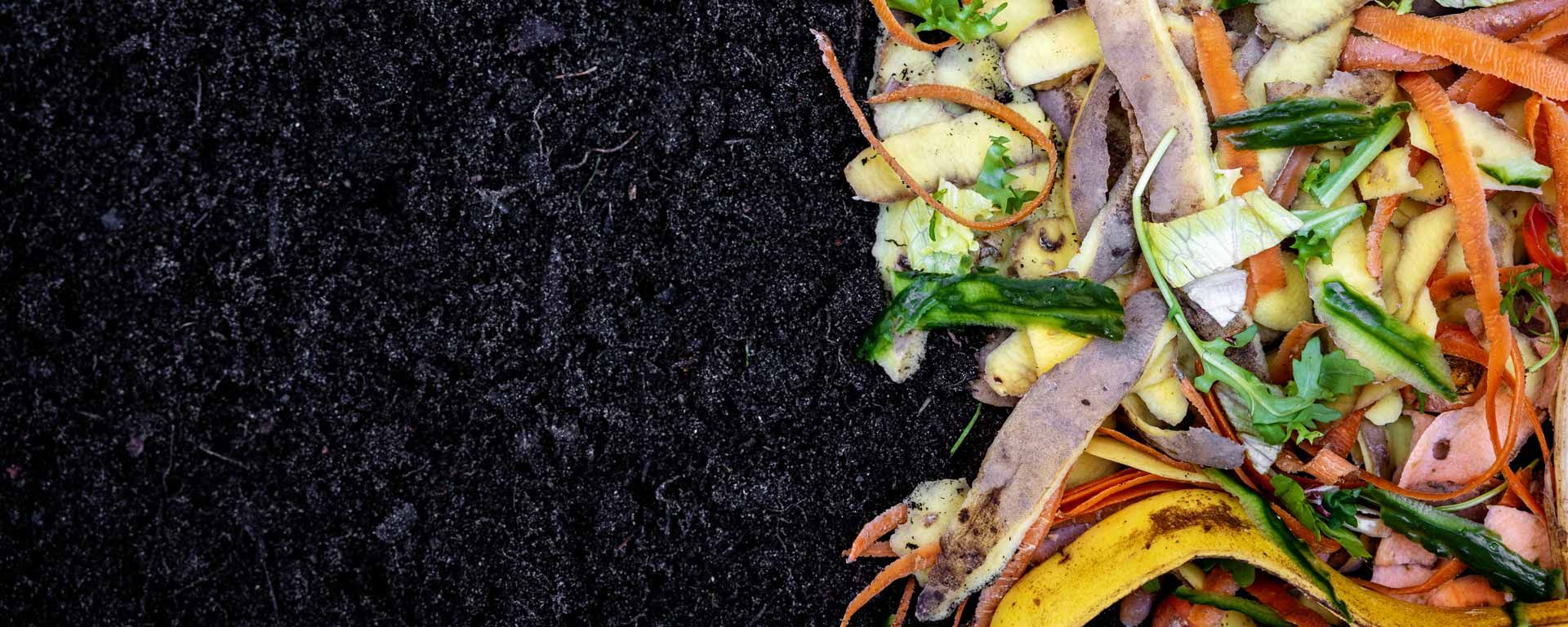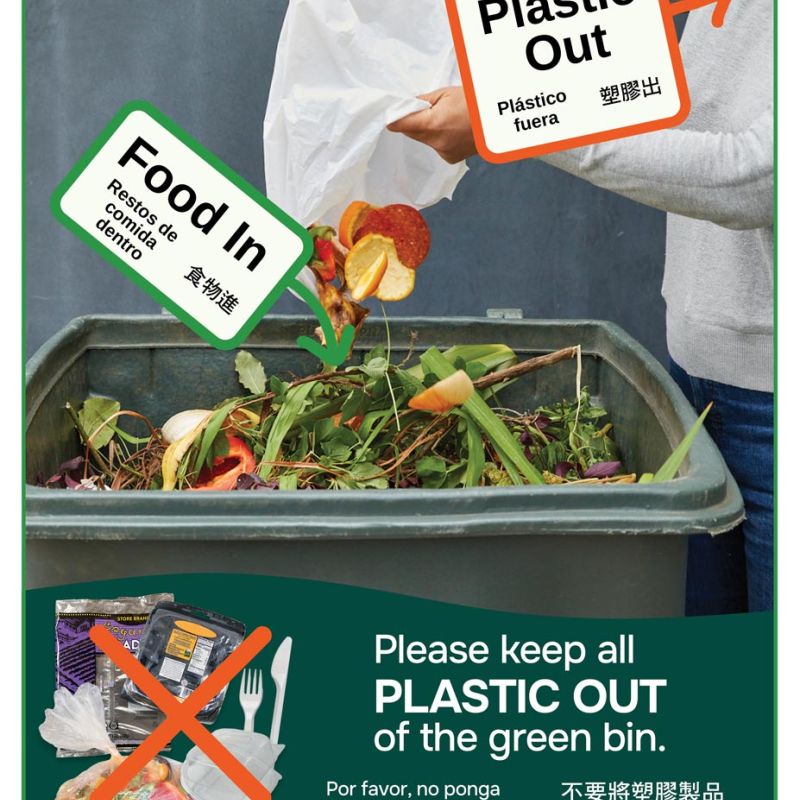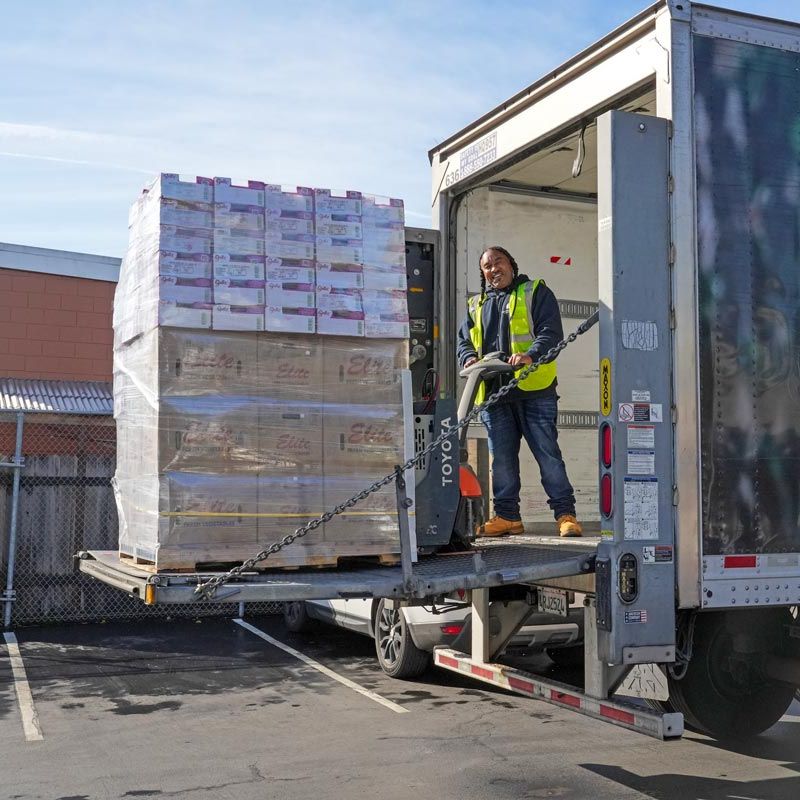
Mandatory Organics Recycling Law (SB 1383)
In September 2016, California set methane emissions reduction targets for California (SB 1383 Lara, Chapter 395, Statutes of 2016) in a statewide effort to reduce emissions of short-lived climate pollutants. The aim of the law is to:
- Reduce organic waste disposal 75% by 2025.
- Recover (for people to eat) at least 20% of currently disposed surplus food by 2025.
When organic waste, such as food scraps, food-soiled paper, and yard trimmings, end up in landfills, they generate methane gas, a significant contributor to climate change and poor local air quality. That is why SB 1383 now requires residents and businesses to properly sort their waste into compost, recycling, and landfill bins. Not only does organic waste diversion combat global climate change, but it also creates nutrient-rich compost and mulch from materials that would otherwise end up in the landfill.
What do the SB 1383 requirements mean for you?
Whether you are a resident or business, you are required to properly sort all food scraps, yard trimmings, and food-soiled paper, and place them in your curbside compost bin.
Living in a building with four units or fewer.
- Subscribe to curbside organics and recycling services through your local hauler.
- Separate waste – recycling, organics, and landfill – into the appropriate containers.
- Multifamily residents – If your building does not have compost or recycling service, ask your property manager to set up service.
- Subscribe to organics collection service with your local hauler. Alternatively, self-haul is allowed as long as records of receipts and weight tickets are provided upon request.
- Separate waste into the appropriate containers based on your hauler’s collection program.
- Provide adequate number and size of curbside collection containers with correct labels.
- Set up properly color-coded indoor containers and signage.
- Commercial business owners must annually provide educational information and training about composting and recycling to employees, contractors, customers, and tenants.
- Determine whether your business, if it generates food, is required to donate surplus food.
Applicable to buildings with five units or more.
- Subscribe to organics collection service with your local hauler. Alternatively, self-haul is allowed as long as records of receipts and weight tickets are provided upon request.
- Separate waste into the appropriate containers based on your hauler’s collection program.
- Provide adequate number and size of curbside collection containers with correct labels.
- Set up properly color-coded indoor containers and signage.
- Multifamily property management must annually provide educational information and training about composting and recycling to employees, contractors, customers, and tenants.
Applicable to gardeners, landscapers, construction contractors, and other commercial generators.
- Complete the SB 1383 Self-Reporting Form.
- Separate waste into appropriate containers – recycle, compost, landfill.
- Take organic waste (landscape and pruning waste, yard trimmings, untreated/uncoated lumber, wood debris, etc.) to an approved organics processing facility.
- Maintain records or receipts of self-hauled organic material.
Inspection and Enforcement
The County is required, by the State, to inspect residents and businesses annually to ensure that they are 1) subscribed to their hauler’s recycling and compost/green waste pickup services, or self-hauling their waste to a certified facility, and 2) properly sorting their waste and utilizing recycling and compost/green waste bins. If a business is a food-generating business such as a restaurant, grocery store, or wholesaler, County inspectors will inspect your business to determine whether you are in compliance with the edible food recovery requirements.
If your property is the subject of inspection and is determined to be out of compliance with the SB 1383 Organics Recycling ordinance, your business or residence may be subject to fines.
Report a Violation
Please use this form to submit an alleged violation of the State of California Senate Bill (SB) 1383. Only complete this form if the violation has occurred in the Unincorporated areas of San Mateo County only. See this map for reference.
Once submitted, the Sustainability Department will review your submission and commence the investigation within 90 days. This form will be submitted anonymously, and you will not be disclosed to the alleged violator.
If you would like the Sustainability Department to contact you on the status of the investigation, you may include your contact information in the bottom section of the form below. Once you have completed the form, please press the “Submit” button. Thank you.
"*" indicates required fields
Apply for a Waiver
Businesses and multi-family properties may be granted a and exempted from some of the SB 1383 requirements if they can provide documentation and evidence to support one of the waiver options.



